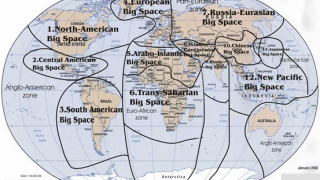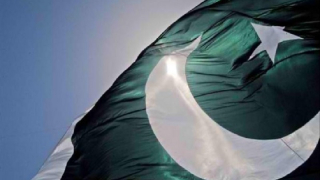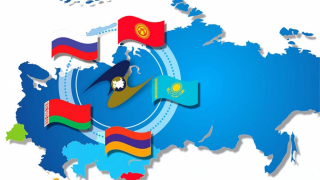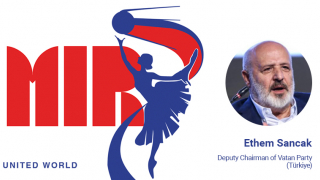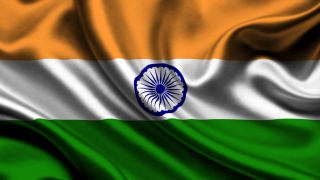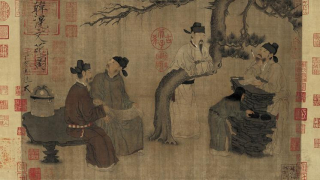The Movement of Non-Aligned countries as a Model of Meeting of Civilizations for a Just Case
The Prime Ministers of 5 Asian countries: Indonesia, India, Sri Lanka Pakistan y Myanmar got together to make a dream come true after liberating themselves from colonial yoke. They invited 29 Heads of State to the first meeting held in Bandung in 1955, which served as the founding conference of what later would be called the Non Aligned Movement.
Their dreams were inculcated in the following 10 principles espoused at the 1955 Bandung Conference:
1. Respect for fundamental human rights and for the purposes and principles of the Charter of the United Nations
2. Respect for the sovereignty and territorial integrity of all nations
3. Recognition of the equality of all races and of the equality of all nations large and small
4. Abstention from intervention or interference in the internal affairs of another country
5. Respect for the right of each nation to defend itself, singly or collectively, in conformity with the Charter of the United Nations
6. (a) Abstention from the use of arrangements of collective defense to serve any particular interests of the big powers
(b) Abstention by any country from exerting pressures on other countries
7. Refraining from acts or threats of aggression or the use of force against the territorial integrity or political independence of any country
8. Settlement of all international disputes by peaceful means, such as negotiation, conciliation, arbitration or judicial settlement as well as other peaceful means of the parties` own choice, in conformity with the Charter of the United Nations
9. Promotion of mutual interests and cooperation
10. Respect for justice and international obligations
The 1961 Non-Aligned Conference in Belgrade in the former Yugoslavia (the current Republic of Serbia), was the first official summit of the Non-Aligned Movement, orchestrated by three key figures: Josip Broz Tito, the president of Yugoslavia; Gamal Abdel Nasser, the president of Egypt; Jawaharlal Nehru, the first Prime Minister of India and Ahmed Sukarno, President of Indonesia.
The Declaration of the Conference in Belgrade established the following goals as fundamental:
• Support for self-determination of the peoples
• Opposition to apartheid
• Non-adherence to multilateral military pacts
• Fight against imperialism in all its forms and manifestations.
• Disarmament and non-interference in the internal affairs of states
• Strengthening of the United Nations
• Democratization of international relations
• Socioeconomic development and restructuring of the international economic system
The Non – Aligned Movement is composed of 120 countries of Africa, Asia and Latin America and the Caribbean.
ÁFRICA (53)
ASIA (39)
LATIN AMERICA AND THE CARIBBEAN (26)
EUROPE (2)
OCEANIA (3)
OBSERVER COUNTRIES (17)
Organizations members of the Non-Aligned Movement:
* Organization of UN
* World Peace Council
* African Union
* Organization of Solidarity with the People of Asia, Africa and Latin America
* Kanak Socialist National Liberation Front
* League of Arab States
* Organization of Islamic Cooperation
The countries of the South are exposed to foreign invasions and armed conflicts that are motivated, mainly, by geopolitical interests of the big centres of power. And those internal conflicts, as well as the conflicts that occur among countries are not few, since some of them are inherited from colonial times. Ethnic, religious or territorial rivalries, encouraged from the outside, unfortunately cause havoc in many countries.
Unfortunately, many of the problems and wars that we, peoples of the South have experienced, have been triggered by the violation of the goals and principles enshrined in the Charter of the United Nations, the principles of the NAM and the Bandung Principles. These principles have been violated by the dominant powers and even some of the countries that are part of the NAM.
After the end of the Cold War in the 90s, the members of the NAM agreed that part of the problems that the countries had was now increased with North American unilateralism and the globalization process. The planetary wealth has grown to an unimaginable extent, but it is concentrated in only few countries. These are asymmetries that exist between the developing countries and the developed countries.
Only 1% of world population owns and manages 99% of world resources. Poverty, inequality and inequity hit most the developing countries. And the developed countries - we have to stress this - are not exempt from these morbidities.
The XVII (Seventeenth) Summit of Heads of State or Government of the NAM was held in September 2016, on the Island of Margarita, in the Bolivarian Republic of Venezuela. At this summit the members agreed on the following:
1. To promote democracy and human rights, defend justice and the rules of international law in relations between nations, seek peaceful resolution of conflicts and promote economic development through regional and international cooperation.
2. To Establish South to South cooperation as a complement and not as a substitute to the North-South Cooperation. South-South Cooperation is an expression of solidarity and cooperation among the peoples and countries of the South, which contributes to their national wellbeing, guided by the principles of respect for sovereignty, national ownership and independence, equality, non-conditionality, non-interference in the internal affairs, and mutual benefit.
3. To redouble efforts towards eliminating the threat posed to the human species the existence of weapons of mass destruction, particularly nuclear weapons. It was resolved to work to achieve a world free of nuclear weapons.
4. To reaffirm the commitment to the promotion and protection of all human rights, which are universal, indivisible, interdependent and interrelated, through a constructive and cooperative international dialogue.
5. It was stressed that the right to development is right to development is an inalienable, fundamental and universal right necessary to build collective and sustainable peace and prosperity across the world. And to achieve it, a profound change in the international economic structure is needed, as well as the creation of favourable economic and social conditions for the countries of the South.
6. To condemn the promulgation and application of unilateral coercive measures against countries of the Movement, in violation of the Charter of the United Nations and international law, particularly the principles of non-intervention, self-determination and independence of States subject of such practices.
7. To promote the importance of respect for religious, social and cultural diversity, in order to promote a culture of peace, tolerance and respect between societies and nations, through intercultural, interreligious and inter-civilizations dialogue.
8. It was reaffirmed that the sovereignty, self-determination and independence of peoples are inalienable principles. In this regard, the members of NAM renewed their commitment to fight against colonialism and neocolonialism, against racism, against all forms of foreign intervention, against all foreign aggression and invasion, against all kinds of domination.
In Margarita it was confirmed that the NAM should be a balancing factor in international relations, beyond the military alliances of the centres of power.
It is well known that our nation is currently subjected to illegal unilateral coercive measures imposed by the government of Donald Trump and some countries of the European Union.
What is intended with these measures is to break the unwavering determination of the Bolivarian Government, presided by Nicolás Maduro Moros, to continue the path set by Hugo Chávez Frías to build a free, sovereign and independent Homeland for the benefit of Venezuelan citizens.
Those measures, which cause death, pain and suffering to our people, must be rejected by all those who love peace and international social justice. Your voice must be heard.
It is pertinent to refer to the Political Declaration adopted in New York on September 20th in which the NAM countries affirm that "... unilateralism and unilateral coercive measures imposed by certain States, including those of an economic, financial or commercial nature do not conform to international law, to the Charter of the United Nations and to the norms and principles that govern peaceful relations between States ... "
It is unfortunate that at the Session of the Human Rights Council in Geneva, a resolution stating that in Venezuela exists a humanitarian crisis was adopted. But you see, this crisis was actually induced by the US and EU centres of power, to serve as a necessary excuse for military intervention.
Our Ambassador to the Human Rights Council in Geneva, Juan Valero, emphasized the following:
“The South to South relationship is an alternative to the economic and financial crisis of capitalism, which in recent years has generated more poverty, more inequality and more injustice in the world. This crisis was caused by financial speculators, with the complicity of the most powerful governments in the world."
In the face of this crisis, the developing countries must strengthen South to South cooperation and create alternative and sovereign mechanisms to overcome the monopoly of credit, the IMF, the World Bank and other institutions.
To stand up to the attempts to erode the sovereignty of countries, the NAM can defend with greater force the interests of the nations of the South.
Therefore, the role that we all can play in defence of our peoples is extremely important.
Allow me to finish by quoting President Nicolás Maduro:
"The NAM represented, and still represents, the most important effort of peoples to make place for dialogue, fraternity and respect based on the common desire to create a better world, the world without empires, without colonialism, without exclusions, without racism, without domination of any kind."





